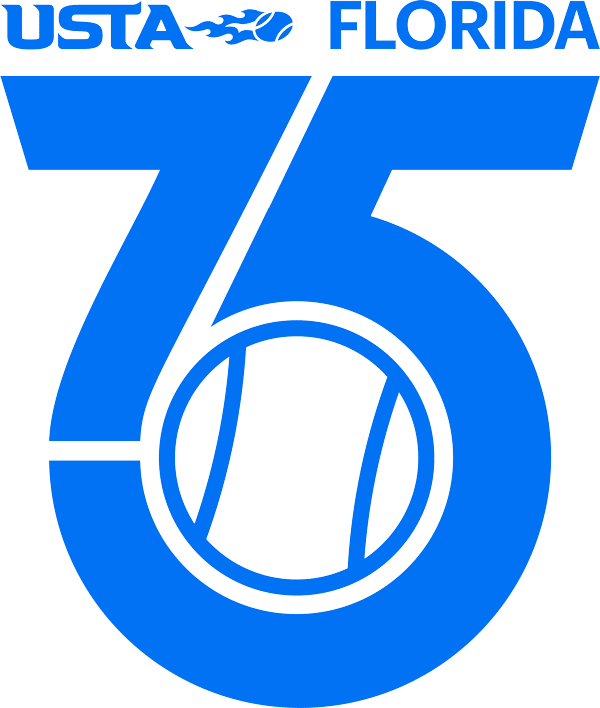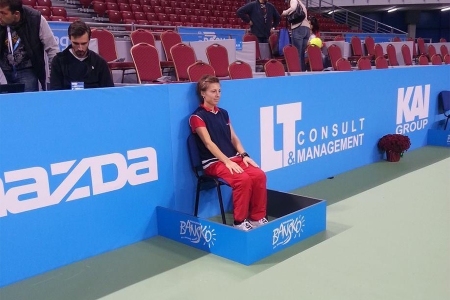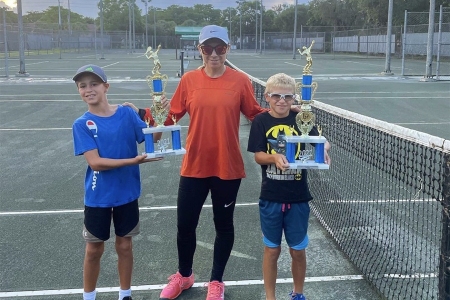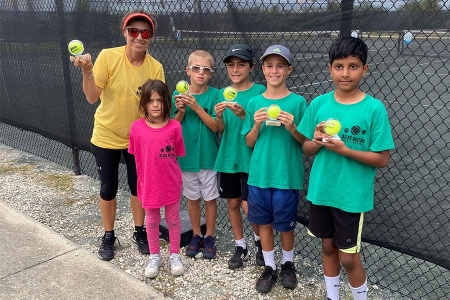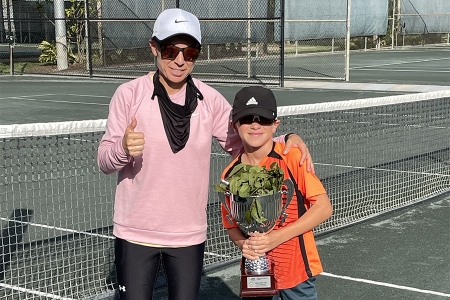In celebration of Women’s History Month, throughout March USTA Florida is celebrating all the women whose passion and presence continue to fuel the growth and success of tennis — at every level. We’re committed to supporting, elevating and attracting diverse women to all aspects of the tennis industry in Florida.
Involved in the sport of tennis for more than two decades, Aleksandrina “Aleks” Koleva has a passion for introducing tennis to juniors and sparking their love for the game. Born in Bulgaria, the 33-year-old now resides in Plantation, Fla., where she operates the Aleks Koleva Tennis School at the Frank Veltri Tennis Center.
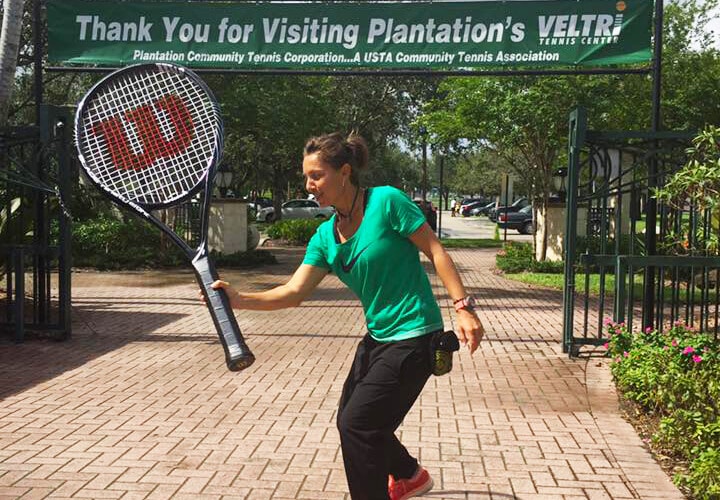
Aleks Koleva
When did you first pick up a racquet and how did you get your start in the sport?
When I was 14 years old, I went to go watch my best friend play tennis. The next day I was on the court and I have been playing tennis ever since.
What is your history in the sport before starting in your current position?
Ever since I was playing juniors, I knew I would become a tennis coach. After high school, I attended the National Sports Academy Vasil Levski in Bulgaria and graduated with a tennis coaching degree. In 2008, I was officially certified as a tennis coach and a tournament director. I have worked the Davis Cup, Fed Cup and WTA events for professionals such as Simona Halep, Ana Ivanovic, Marcos Baghdatis, Grigor Dimitrov and many others back in Bulgaria. I also traveled with some of the top Bulgarian tennis players around Europe, as well as traveled to other tennis academies where I could learn more from the other coaches.
Prior to creating my own program, I worked at Sanchez-Casal Academy in Naples for two years, where I had the chance to learn from world-renowned coaches. I also decided to become a certified referee to support my tennis career and I am a Net Generation member assisting school teachers to bring tennis to their PE classes.
You run the Aleks Koleva Tennis School out of the Veltri Tennis Center. When did you start your tennis school and can you tell us more about it?
When I first started working at the Veltri Tennis Center during the summer of 2018, I found a great facility with a great environment but no kids playing tennis. There were plenty of children swinging racquets and hitting balls all over the place – but not actually playing. My passion to teach people how to play did not let me just sit around and watch that happen.
I wanted to create a well-organized program for kids, where they would be divided by age and skill level, and teach them the purpose of our sport. At the start of the 2018 school year, I officially started my own junior tennis program, Aleks Koleva Tennis School, at the Veltri Tennis Center. In the beginning, I was the only coach teaching around 20 kids. Currently, I have eight coaches teaching 150 kids who range in age from 4-14 with all different levels of experience. My junior development tennis program provides a great combination of technical instruction drilling, game playing, and other fun activities. The program is for all levels from beginner to advance.
What is your ultimate ambition as a coach?
My ultimate ambition is to give my players a proper foundation so they can grow as athletes and succeed at the highest level. My goal is to impact as many people as possible through tennis. The more racquets I put in people’s hands, the better. I do a lot of volunteer work with my community by using the tools provided by Net Generation as well, such as teaching school leaders and community programs the game of tennis.
You’re also deeply involved with Love Serving Autism – how long have you been working with LSA?
I first met Lisa Pugliese-LaCroix, the founder of Love Serving Autism, about three years ago during a coaching conference at the USTA National Campus in Orlando. She impressed me with her passion and desire to help all the kids participating in her program. I wanted to share that passion, follow her mission, and make an impact within my own community. The Love Serving Autism program gave me the opportunity to grow not only as a coach but also as a person. Every class is unique. The more I get to know the kids and their families, the more I understand my mission as a coach.
What is the most rewarding part of your job?
The most rewarding part of my job is when I see my players improving, parents enjoying watching their kids playing, and everyone learning the game of tennis. Of course, when my players do good in competitions, this brings me even more joy than winning matches myself. My players have been winning tennis tournaments throughout the state, which is exciting. In 2021, my top junior team tennis teams from orange and green dot ball won first place in the regional championships held in South Florida and qualified for the 2021 USTA Florida Fall Junior Team Tennis State Championships in Cocoa Beach. Our green dot ball team won the trophy!
It’s known there aren’t many women in positions of sports leadership across the country – why does that need to change?
It needs to change so the younger generation has leaders to look up to and to follow in their footsteps.
What do you think women bring to the tennis-teaching profession that makes them a valuable asset to tennis clubs/facilities?
One of the most important assets that a female coach brings to the tennis-teaching profession is patience. We all know that teaching beginner players, especially young kids, requires a lot of repetition, patience and calmness. I believe women tend to have a better connection with kids and a better understanding of their emotions on and off the court.
What do you think we as an industry can do to bring more women into those roles?
Get them involved in tennis at a very young age through creative programs. Introduce them to junior tennis and hopefully, they will go on to play either college tennis or even professionally. Once they finish their competitive tennis career, they could participate in a mentor program working under an established leader in the industry.
What advice would you give to other women who may be hesitant to take the leap to a higher-level position?
When people approach you differently for being a female leader, stand behind your beliefs and show them what you stand for. The ones who decide to follow you and share your passions will be the ones you want to focus your energy on. The ones who try to bring you down? You’re better off letting them go. Being consistent and showing professionalism in everything you do is a key to success.
For more inspiring features on women in Florida tennis, click here, and be sure to follow @ustaflorida on social media throughout the month of March.
